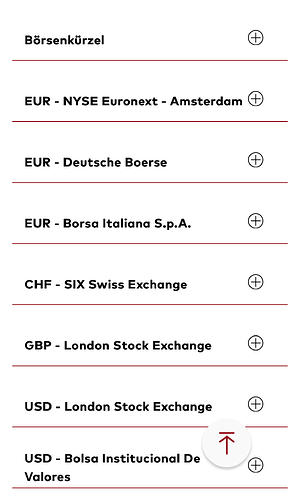Hi all,
TL;DR below.
I received €200,000 inheritance into my German bank EUR account due to my parents’ passing and I’m preparing to invest it long-term into one single global equity ETF — passive, diversified, buy & hold.
I’m weighing two practical options:
1. Keep the funds in Germany, use a German broker (e.g. my bank DKB) to invest in VWCE (Vanguard FTSE All-World UCITS ETF, accumulating, EUR-denominated)
2. Transfer the money to Interactive Brokers, convert to USD, and invest in VT (Vanguard Total World Stock ETF, USD-denominated, distributing)
Some personal context:
I’m 50 years old and I currently live in Switzerland (wife is little younger)
However, a large portion of my spending is in EUR, due to regular business travel
In 10–15 years, I may (or may not) retire in the Eurozone, so future expenses might be fully EUR (or may not be)
My goal is global diversification and long-term simplicity
Option 1: German Broker (VWCE – EUR)
![]() Low TER (0.22%)
Low TER (0.22%)
![]() Accumulating — no dividend reinvestment hassle
Accumulating — no dividend reinvestment hassle
![]() No FX conversion costs
No FX conversion costs
![]() Matches my current EUR spending and possible future EUR-based retirement
Matches my current EUR spending and possible future EUR-based retirement
![]() Some potential tax/reporting friction being a Swiss resident using a German broker
Some potential tax/reporting friction being a Swiss resident using a German broker
![]() EUR/CHF currency risk if I stay in CH permanently
EUR/CHF currency risk if I stay in CH permanently
Option 2: IB (VT – USD)
![]() Broader global market exposure (VT includes small caps)
Broader global market exposure (VT includes small caps)
![]() Very low fees and spreads at IB
Very low fees and spreads at IB
![]() Can convert EUR to USD at minimal cost
Can convert EUR to USD at minimal cost
![]() Full control over FX timing (convert now or later)
Full control over FX timing (convert now or later)
![]() Matches IB’s strengths: flexibility and global access
Matches IB’s strengths: flexibility and global access
![]() Distributing ETF = dividend taxation might get tricky (esp. in CH)
Distributing ETF = dividend taxation might get tricky (esp. in CH)
![]() USD exposure — not my spending currency today or possibly in retirement
USD exposure — not my spending currency today or possibly in retirement
My current thinking:
While I do live in Switzerland, my spending is EUR-heavy now, and could be entirely EUR later. That makes VWCE via a German broker the cleaner choice today — no currency conversion, accumulating ETF, aligned with my lifestyle.
That said, IB + VT gives me flexibility and access to broader exposure, but introduces USD exposure and dividend complications.
In summary, I very much prioritise simplicity over the pursuit of marginal returns.
-–
TL;DR:
I’ve got 200k EUR. Should I:
→ Invest in VWCE via a German broker (no FX risk today, clean accumulation)
→ Or invest in VT via Interactive Brokers (more flexibility, but USD exposure + dividend hassle)?
Who’s been in this boat — or jumped ship and regretted it?
Thanks for your input!


